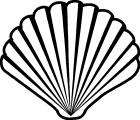The novel I just finished for my book discussion group has the intriguing title
Revolutionary Road. The book by Richard Yates was published in 1961, but has only recently been made into a major motion picture starring Leonardo Dicaprio and Kate Winslet. It will be interesting to see how the movie interprets the book, as I think there are many angles and perspectives that can be taken. First, the title: what revolution? is this about some historic era? some grand challenge? some major events? On the contrary, "Revolutionary Road" is a rather "high-falutin'" name for a housing development in Connecticut being settled in the mid-1950's. The two main characters are April and Frank Wheeler and we are drawn into a few months of their lives - their thoughts, their fights, their affairs, their plans, their friends and neighbours, their community and work, their dreams. It's like watching a reality show, and it's not a very pretty picture.
My quick reaction to the characters: I don't like these two people! April and Frank have it all: freedom, two beautiful children and another on the way; health; the capacity to make the world a better place, to establish a loving home; to help build up a community; energy; intelligence. I think, from the point of view of the serious hard-working young parents of today, these two would be considered selfish, self-centered, and self-absorbed; their children should be their first priority, but their attitude towards them borders on indifference and neglect.
Reaction to this book could be different depending on one's point of view. I have been amusing myself thinking about how April and Frank might be viewed by society today.
Sociologists could consider the demographics: the generation in the book is a bit older than the baby boomers, and even the post war generation; they are pre "hippies" and the sexual revolution, yet there are some of those elements 'blowin' in the wind." The move from the cities to suburbia would, of course, be a major theme for study: were (are?) the suburbs the intellectual wasteland depicted in the novel?
Historians could look at the changes that have happened since then in technology and business particularly. Here, we see the beginnings of electronic gadgetry, and also the beginnings of advertising, public relations, marketing and so on.
From the point of view of business people today, Frank's attitude would seem completely foreign and unacceptable: three martini lunches for a junior employee? lazing on the job for months on end? what about the sexism in the office? professionalism? accountability?
Feminists, of course, might take the perspective that April should have been able to have an abortion as she wished; it was her body and Frank had no right to have a say in the matter. April would still be alive had there been safe therapeutic abortions.
Psychologists and mental health people could have a ball with this book. Sympathetic therapists might explore the reasons for April's emotional vulnerability and Frank's insecurity about work in their relationships with their fathers. Mental health professionalls would find much to comment on about the way the mentally ill were treated in those days and would be horrified by the attitude of Mrs Givings (ironic name?) to her son John, as well as to the treatments he was being given institutionally, among them electric shock therapy.
Now, there is much that is excellent about the book: Yates is absolutely superb at accurately depicting his characters; they come alive, they are real. Also I had a sense of
deja vu as far as the details of that era were portrayed: little things, like remember how much people smoked?? how it felt to drive in those big old cars? It will be an interesting discussion when our book group meets next week!


